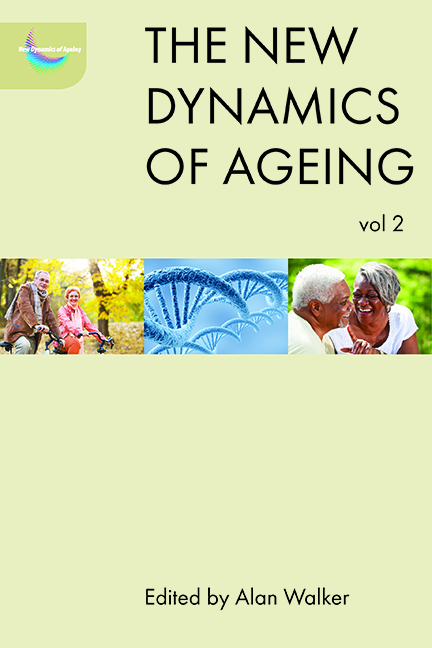seven - Understanding immunesenescence
Published online by Cambridge University Press: 13 April 2022
Summary
Introduction
With the ageing of the population, hip fractures are a growing issue in the UK (Dennison et al, 2006). At least half of older adults who have suffered a hip fracture never regain their previous function (Stevens and Olson, 2000), with mortality at one year after the fracture recorded as high as 33 per cent (Roche et al, 2005). The factors influencing recovery from hip fracture are poorly understood. These include depression, a common co-morbidity in these patients (Nightingale et al, 2001).
The prevalence rate for depression in people who have had a hip fracture across eight US and UK studies ranged from 9 to 47 per cent (Holmes and House, 2000). Importantly, depression in people who have suffered a hip fracture has been associated with increased risk of infections and poor survival (Nightingale et al, 2001), impaired recovery and a reduced ability to regain pre-fracture levels of physical functioning (Mossey et al, 1990).
It is well documented that ageing is accompanied by poor functioning of the body's immune system (Dorshkind et al, 2009; Panda et al, 2009). This is called immunesenescence, or immune ageing, and contributes to the increased risk of infection in old age (Gavazzi and Krause, 2002). Particular aspects of immune ageing can be observed in specific important immune system cells. For example, neutrophils are key cells in the immune system that are responsible for providing protection against bacteria such as those that cause hospital-acquired infections and pneumonia. Ageing is accompanied by a decline in neutrophil ability to ingest such bacteria (Butcher et al, 2001), and their ability to kill the bacteria once ingested (Tortorella et al, 2000). Similar reductions in efficacy have been shown in other immune cells, such as monocytes, with advancing age (Shaw et al, 2011).
An additional important component of the immune system are natural killer (NK) cells, which are capable of destroying cancer cells and cells infected with viruses (Farag et al, 2003). Older adults have an age-related decrease in NK cell function (Hazeldine et al, 2012), which may explain why they are more susceptible to cancer and virus infections such as influenza.
- Type
- Chapter
- Information
- The New Dynamics of Ageing Volume 2 , pp. 107 - 130Publisher: Bristol University PressPrint publication year: 2018

